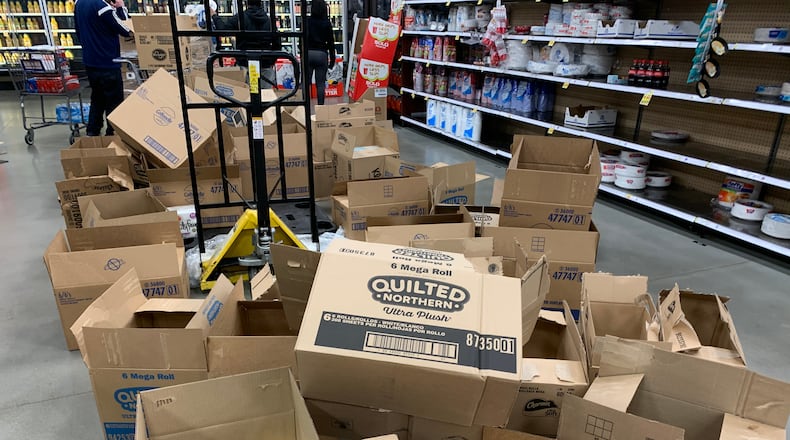In this time of toilet paper hoarding, some issues with sewers and septic systems have been compounded.
We are told, and I do believe, that there is no real national toilet paper shortage. For some reason, people believed there was a problem and through their acceptance of rumor, a problem was created.
This reminds me of 1973 when some people say Johnny Carson started a run on toilet paper purchases with a joke in his monologue. It wasn’t funny.
MORE FROM PAM COTTREL: Take time now to complete the 2020 Census
Today, the only real toilet paper shortage is in a household that has used up all the toilet paper. The homeowners cannot find toilet paper to purchase because a hoarder got to the stocked shelves first. There would be plenty of toilet paper if some folks didn’t buy a year’s worth at once.
So what do we do when the toilet paper runs out? Folks have found a number of substitutes, like “flushable” wipes, facial tissues, moist towelettes, paper towels, etc that get the initial business done, but then create problems in the pipes after flushing.
These substitutes may indeed flush, but they do not disappear. Unlike toilet paper which is designed to do what it does and disintegrate in a short period of time, these surrogate wiping items are collecting in village and city sewer systems and private septic systems.
MORE FROM PAM COTTREL: Stop complaining about steps taken to slow spread of the coronavirus
According to New Carlisle Mayor Mike Lowry, these items are causing accumulations that can block a sewer pipe or cause issues in a wastewater treatment plant. He posted about this on his Facebook page “What’s Going On in New Carlisle?”
This posting included illustrations of accumulations of those wipes and grease which is an entirely different, yet similar issue.
I couldn’t help but wonder if these issues extended throughout the county.
Chuck Bauer, Clark County Director of Utilities, agreed with Lowry.
He told me that only toilet paper should be flushed.
“With COVID-19 and more flushing of sanitary wipes, we anticipated issues,” said Bauer.
He explained that there has been an increase of sanitary cleaning wipes in the system over the last five to eight years.
“This wreaks havoc on our pumping system,” he said.
Now this has not caused a big increase in cost yet, but there have been increased work hours keeping pipes open.
Eventually, Bauer believes that the additional improper items in the sewers lines will necessitate the replacement of the pumps to more expensive pumps that can handle the additional matter.
And that is not good for a long term budget or taxes.
Speaking of budgets, homeowners can also run into additional expenses brought on by the flushing of personal wipes, baby wipes, feminine hygiene products, and bathroom cleaning wipes. The wipes can snag on the rough sides of sewer pipes on the way to the street. This can result in expensive pipe cleaning service bills or really awful sewer back up into basements.
In worse case scenarios, if the yard has to be dug up to repair the sewer pipes, it is the financial burden of the property owner.
After the line joins the main sewer line it becomes a problem that we all have to pay for.
MORE FROM PAM COTTREL: Ohio officials are making residents proud of COVID-19 response
Septic tanks and treatment systems in the country probably cannot handle these wipes either if a big city system has to watch out for them. These systems must be handled with care to function properly.
It seems to me that the solution is simple here.
Personal wipe, baby wipes, bleach wipes, and other personal paper products can be properly disposed of in the trash. Toss the wipes into the trash instead of flushing. It will save you and our local utilities a lot of money in the long run.
Getting through this pandemic requires cooperation between citizens, the governments, and medical personnel on many different levels. Respect of each other’s place in the community, listening to each other’s needs and opinions, and unselfish caring for our neighbors is essential.
Keep on keeping on.
About the Author
